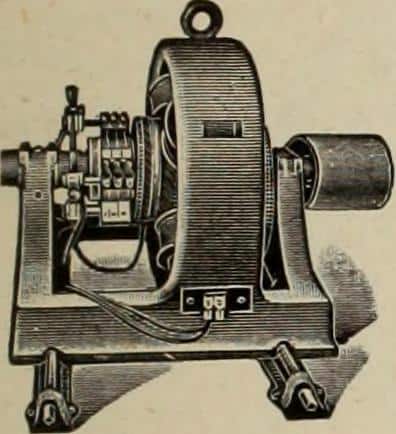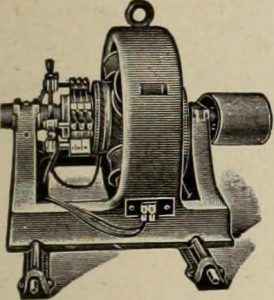
 Are Your Reliability Engineering Technical Skills Good Enough?
Are Your Reliability Engineering Technical Skills Good Enough?
How do you know? How would you know?
There is a lot to know concerning the technical aspects of reliability engineering. From calculating summary statistics to discovering the root cause of a failure, the body of knowledge you should master as a reliability personal is expansive.
Another way to judge your skills is considering you acuity just hasn’t been challenged. Are you able to use the tools and techniques you know to solve any problem?
Maybe a better way to ask this question of yourself, is:
Do I have the technical knowledge and skill to be a good reliability engineer?
The key word here is “good” which is left subjective. For me it means you add value with each encounter and engagement. You can identify and solve problems effectively. Furthermore you know which approach to use for each situation. Thus you do not over solve simple problems, nor oversimplifying difficult ones.
Competence Assessment Tools
Various authors have devised frameworks for the assessment of professional competence. In a simple manner we consider a person competent if they can achieve the desired results for a given situation. If the coffee shop cashier can count out the correct change without error repeatedly, they demonstrate competence for that activity. It does not mean they are able to make a double espresso the way I like it.
Breaking down the assessment to the list of specific tasks or procedures is one method, yet does not assess the ability of the person to make decisions. Especially making decision in novel situations. Just because you are familiar with all the reliability engineering tools does not mean you can adapt your knowledge to create a novel solution when needed.
Knowing the tools and techniques of the trade is a prerequisite for being a good reliability engineer. It is not the entire story.
One approach is the establishment of competency standards by professional or government organization to define qualifications for the profession. These standards generally use a tiered approach to the specific set of principles, concepts, and activities involved with the specific profession.
A simple three level approach may include:
- Level 1 – knowledge and understanding
- Level 2 – application of knowledge and understanding
- Level 3 – reasoned advice and depth of technical knowledge
ASQ has the Certified Reliability Engineer and SMRP has the Certified Maintenance Reliability Professional as examples. The CRE uses Bloom’s Taxonomy along with a long list of skills to layout the elements of a competence assessment.
Another framework proposed by Miller in a 1990 paper uses four progressive stages:
- Knows
- Knows how
- Shows how
- Does
Being aware of the facts and processes available to solve problems is a step in being able to actually solve problems. The adage that if one truly understands a topic they are able to explain it to another is the shows how. Another way to demonstrate competence with a task is to show that you know how to do it.
The issue is the “Does” stage is the performance element. Do you know what and how to do when called upon to perform?
Whether Bloom’s or Miller’s or any of the others, it is the ability to competently identify and solve the issue facing you that define your competency.
With experience not only do you show your competency you also gain confidence. Part of the challenge of being a good reliability engineer is we face a wide range of situations. Subtle failure mechanisms, novel materials, unknown use conditions, along with the pressures of functional performance, cost and marketplace competition.
Just because you did solve a few problems doesn’t mean you will be able to solve tomorrow’s challenges. That will in large part rely on you competence and ability to learn quickly. I would throw in you confidence in yourself, too. In short, being a good reliability engineer relies on our ability to ask good questions. We may not know the answer to those questions, yet can find out.
How do you judge your performance? How do you define being a good reliability engineer?
Notes:
Trinder, John C. “COMPETENCY STANDARDS A MEASURE OF THE QUALITY OF A WORKFORCE.” ИНТЕРЭКСПО ГЕО-СИБИРЬ 2, no. 2 доп (2008).
Marzano, Robert J., and John S. Kendall, eds. The new taxonomy of educational objectives. Corwin Press, 2006.
Bashook, Philip G. “Best practices for assessing competence and performance of the behavioral health workforce.” Administration and Policy in Mental Health and Mental Health Services Research 32, no. 5-6 (2005): 563-592.
Good article Fred , if it is true reliability should be part of our DNA , is not enough if you do not add value to the organization ; ie if apalanza benefits to the business and the customer (the cashier coffee is the best example) and maintenance must be done by people who understand the following:
1. Because they do
2. As they do
3. Who do
This is part of the gold circles , which consider help improve organizational performance .
Thanks Luis, yes the approach or attitude matters, not just doing the task well. Knowing the situation from all sides allows use to apply ourselves to best support the customer, the organization and ourselves. cheers, Fred
Dear Fred,
Simple & effectively communicated note.In fact the note can be directly transformed into activity algorithm . Going a step ahead an expert system (AI) can be modeled similar to machine learning.
Would appreciate your thoughts on my take,
Kind regards,
Raghu Kashyap.
Hi Raghu, thanks for the note and idea. Not sure I fully understand the idea though. Is this suggestion a machine can be a good reliability engineer? cheers, Fred
Hi.
I meant that we could try/attempt a AI based Reliability skill assessment & learning/teaching model/system. The model could be interactively updated as a function of requirements/ learnt skills.
Much clearer… thanks. This would be a step above an interactive or branching learning program. It would be like having a coach or mentor always available as you make decision thought the day and career.
It is possible to create case studies that are interactive, yet will have to think about how to monitor a students actions to be able to provide the right advise at the right time.
Cheers,
Fred